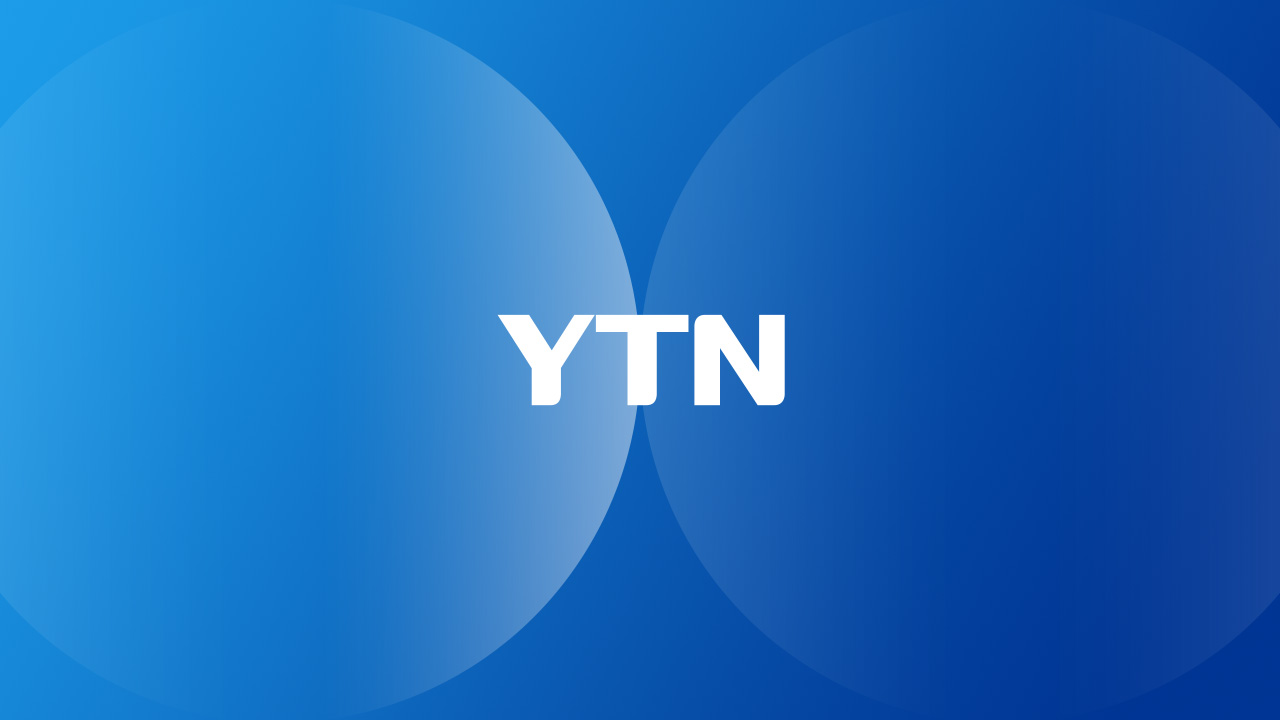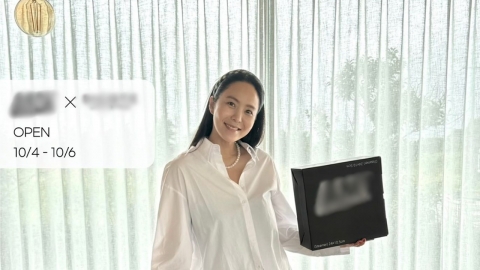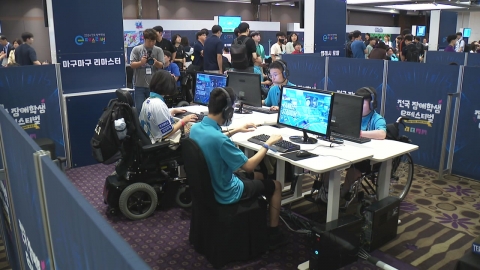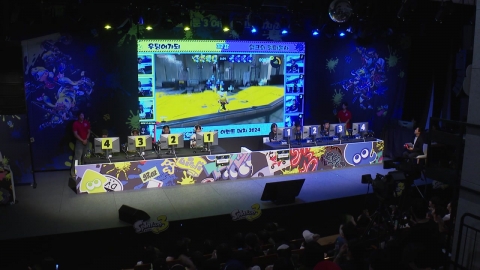"It's illegal." Science and Technology Minister Yoo Sang-im is confident in declaring 尹 that Korea will " leap forward as one of the world's three largest powerhouses."
이미지 확대 보기

YTN Radio (FM 94.5) [YTN News FM Wise Radio Life]
□ Broadcast date and time: October 4, 2024 (Fri)
□ Host: Park Gui-bin Announcer
□ Castor: Yoo Sang-im, Minister of Science and ICT
* The text below may differ from the actual broadcast content, so please check the broadcast for more accurate information.
□ Host: Park Gui-bin Announcer
□ Castor: Yoo Sang-im, Minister of Science and ICT
* The text below may differ from the actual broadcast content, so please check the broadcast for more accurate information.
◆ Announcer Park Gui-bin (hereinafter referred to as Park Gui-bin): Wise Radio Life This time is Science Issu Time. Now it's science that enriches our daily lives in an era where science is everyday. We have science. Science is IT. Science Issu Today, we have the new minister in the studio. Yoo Sang-im, Minister of Science and ICT, is here. Welcome.
◇ Minister of Science and ICT (hereinafter referred to as Yu Sang): Hello,
◆Park Gui Bin: There is a camera in front of us. Since it's your first time, can you say hello to the listeners first?
◇Yu Sang-im: Hello, everyone. I'm Yoo Sang-im, the new Minister of Science and ICT. I hope there will be an opportunity to meet you often in the future. Nice to meet you.
◆Park Gui-bin: Yes, welcome. I think I'll see you often on YTN radio in the future. Thank you. This is a segment called "Science It Shoo" that we continue to do, so science has entered our daily lives. Since we often have time to share with the minister in charge, I will start today for the first time with the expectation that I will see you often in the future. The Minister has been close to science for a long time. What is science and technology to the Minister? If you could say something,
◇Paid: I think science is about uncovering the hidden secrets of nature, and technology is about developing something useful in our daily lives based on that science. I'd like to say this.
◆Park Gui-bin: Finding something hidden in nature and developing something useful in our lives. You are here as the Minister of Science and Technology. So, I think your shoulders will be that heavy, and as I said earlier, the minister has been with science for a long time. Because let me recite the minister's history. You have a Ph.D. in material engineering from Iowa State University in the United States. You've settled down at Seoul National University. You are the head of the new material joint research institute. So, he is a very accomplished person in the field of material engineering and has been a scholar in the field of science and technology for a long time. But now he is the minister of the ministry in charge of policy. How is it so different? How is it?
◇Yu Sang-im: It's very, very different. My main duty as a professor was to lecture students and conduct research and development with graduate students, and other than that, policy was not the main thing because our academic activities, academic service, or getting a position like the director of the New Material Joint Research Institute you mentioned earlier. What I need as the Minister of Science and ICT is a little political, and I need to have a sense of political affairs, and I have to think about policies a lot and spread them. I will tell you that it is quite different.
◆Park Gui-bin: You must have been very busy when you were a professor and a scholar, but now that you become a minister, you have a lot more things to do, right?
◇Yu Sang-eun: Yes, that's right.
◆Park Gui-bin: Because he's been busy since he took office. You attended the International Atomic Energy Conference in Austria last Chuseok holiday. Didn't you go to your hometown during the holiday?
◇Yu Sang-im: Yes, I went to Vienna, Austria from the 15th to the 19th.
◆Park Gui-bin: What kind of discussion was there?
◇Paid: There was now the 68th General Assembly of the International Atomic Energy Agency. I participated as the chief representative of South Korea, so the main issue is that we will respond to the global energy problem by expanding the use of nuclear power. North Korea's nuclear issue, Ukraine's nuclear safety. Since the safety of nuclear power plants is now a serious concern in the war between Russia and Ukraine, the global nuclear security issue has been focused on.
◆Park Gui-bin: And we'll have to prepare another plan for the future. AI is another issue that cannot be left out at the government level and as a topic of our science. As far as I know, it's last Thursday. The National AI Commission has been launched. Can you introduce it briefly?
◇ Yu Sang-im: The National AI Commission was launched last Thursday, Sept. 26. The National AI Committee will be a declaration that will collect all national capabilities in the AI field and become a central point for private cooperation. The composition will be a pan-governmental composition in which the top experts in the private sector and 10 related ministries, including the Ministry of Science and ICT, participate. It plays a role in deliberating and coordinating the overall AI policy, such as AI R&D and investment utilization, professional manpower training, and international cooperation. That vision started with the grand vision that President Yoon Suk Yeol of Korea will lead the transition of AI as chairman and Korea will leap forward as three major powers in the world. Our Ministry of Science and ICT will also play its role as the main department of AI.
◆Park Gui-bin: Our country has been like that for a long time, hasn't it? There's a saying that you're a very smart person. And if I interview with the person in the field at the relevant department a lot, our country has very good technology. As you know, since you were in college, you've been directly interacting with students and aiming to become one of the world's top three powerhouses. Wouldn't it be possible to become an AI powerhouse? How do you see it?
◇ Yoo Sang-im: I think I can tell you that the capabilities we have are definitely capable of going to the three major powers. But the problem is that there is a competition for technological supremacy in AI in any country. So, if the government and the private sector do not unite and deal with this problem, even if the G3 has the capabilities, the problem of achieving it is another thing, so I think that is the most important thing to do now.
◆Park Gui-bin: So in what direction do you have plans for our country to become one of the world's three largest AI powerhouses?
◇Paid: Ultimately this is the private sector. So there are many excellent capabilities that the private sector in Korea has now. The number of giant AI models is third in the world, followed by Generative AI's patent number, and the national mobile AI acceptance is first among Korea, the U.S., and Germany.
◆Park Gui-bin: I think so. I think we'll be No. 1 even if we don't investigate this.
◇Yu Sang-im: So I need to develop this capability more and there are some parts that I lack. It's not clear where AI is going now that it's hard for the private sector to do, so if you hesitate a bit to invest and then develop technology, you need to have a computing infrastructure infrastructure infrastructure infrastructure, which doesn't come directly from companies' profits, so the state should create infrastructure. This is the role of the government. So, the government will set the direction of the national AI strategy policy and innovate AI in four sectors. It's a little difficult to say, but we're going to implement a project called the flagship project, and the first thing is to build the computing infrastructure I mentioned earlier. For the development of artificial intelligence technology, the first policy is to create an environment where researchers can research without shortage. The second is to stimulate private investment. If you want to become a private investment, as you know, the legal system should be complete, but I'm working hard on it, but the basic AI law has not yet passed, so
◆Park Gui Bin: You're pushing for it, right?
◇Paid: Yes, the finance is urgent. That's why there's a lot of demand from the private sector. It is currently pending in the National Assembly, but even when I go to the National Assembly, I keep telling you that the basic AI law is very urgent. AI is applied to various areas to create value. So, it's an area where economic benefits can be significant, and we're now expecting that AI will create an economic effect of about 310 trillion won a year if it is applied to public, industrial, or medical care. Lastly, since this is all done by humans, experts in AI must support for AI to develop, but this core manpower training is not done by the private sector, right? We will focus on training more key personnel by the state.
◆Park Gui-bin: That's right. Everything is done by people, and the most important thing is people in a way. As you said, AI also said it would make efforts to foster key human resources now, but in fact, when you go to the university, technology is developing day by day, and excellent talents are actually avoiding science and engineering. This problem has been around for a long time, so last week, you also announced a strategy for the growth and development of science and technology talents. What is the core content of the government?
◇ Yoo Sang-eun: Now, the language of science and engineering seems to be only used in Japan, Korea, and Taiwan in the world, but this person is a liberal arts person, this person is a science and engineering person. No other countries stipulate that this person is a science and engineering person. Also, medical school and pharmacy are all science and engineering. So I use the term "scientific technician" a little bit. So, there are many cases where medical schools and pharmacies are concentrated, so AI should also have more talented people than medical schools, and I think it is a situation where excellent people should play a role as Korea's national team in the competition for international hegemony, so how to supply and receive talented people should be nationalized, but this technology development is not simple, right? There will be a huge change in the next five years or so, and how to supply and receive talented people who can play a major role here, how to gather students from a background where students can go to professionals, and how to give them the opportunity to play an excellent role in the early and present experts. Or if you're an elementary school student, you have more than 10 years left, so it's hard to play a role within 10 years. Then, from high school to college students, or new students, and easy people should play this role. So now, especially college students or graduate students.
◆Park Gui-bin: Especially in the case of graduate students, an environment where they can conduct research for a long time should be created, and I heard that they are having a hard time in terms of tuition, living expenses, and research expenses, so I wonder if you are thinking of supporting that part.
◇Yu Sang-eun: Yes, that's right. In particular, AI is the first area that the government focuses on among national strategic tasks, so we are paying special attention to everything you have just said. So, we are making efforts so that young researchers don't have any difficulties in life or research funds, so that we can establish national scholarships or research life incentives in various ways and research in a good environment.
◆Park Gwi-bin: The listeners are giving their opinions while listening to our show. The listener said, 'Fostering scientific talent is the future of Korea. The Minister's efforts are needed to ensure that they are not taken away by other countries. I got your back. ’ That's what they say.
◇ Yoo Sang-im: Yes, I will receive that support and work harder to create an environment where the brains of the country can come to this very science and technology side and focus on research without difficulty.
◆Park Gui-bin: Yes, and next year's national R&D budget has increased compared to this year. Since the inauguration last month, you have emphasized innovation in the R&D system. In what direction do you plan to innovate?
◇Yu Sang-im: You know that Korea has entered the ranks of advanced countries, right? So far, let's catch up with the science and technology of advanced countries in order to enter the ranks of advanced countries. Let's catch up quickly. That's why we use the word fast follow. We have focused on research and development focusing on catching up quickly. You just came in. Since we came in, the problem of competing with them first is now a completely different paradigm. The difference from previous national R&D is that now we are also an advanced country, so we have to go ahead in the competition with advanced countries first. That's why it's called "First Move" in English. If you go first in the fast follow, it should be challenging and innovative in the R&D approach and not afraid of failure, but it should also be evaluated by world-class researchers. Beyond simply evaluating whether you are good at it or not, such a sharp evaluation is very helpful to those who are responsible for this task. It is a completely different approach to improving the evaluation system in such a format because you need to receive such help.
◆Park Gui-bin: The national R&D budget has increased compared to this year. In the future, we will invest a lot in Korea to be the most advanced country in the ranks of the first move. That's what they said. It's the beginning of your term. I think you'll think a lot about the direction the Ministry of Science and ICT should go. This is the last question for today. If there's anything you want to achieve during your term in office, can you tell me in bold and short terms?
◇Yu Sang-im: We will make sure that Korea will take the lead in this hegemonic political battle in AI semiconductors, advanced bio, and quantum science and technology of the three major game changers. The first and second are that the industrialization rate of the technology developed in the area that is not doing well in Korea is very low, but it is to increase it a lot to become a new industry and national growth engine. Finally, the Ministry of Science and ICT will also make efforts to stabilize people's livelihoods so that the public can feel safe from such problems as voice phishing and deepfake.
◆Park Gwibin: I see. So far, I have been with Yoo Sang-im, Minister of Science and ICT. Thank you.
◇Yu Sang-eun: Thank you.
◇ Minister of Science and ICT (hereinafter referred to as Yu Sang): Hello,
◆Park Gui Bin: There is a camera in front of us. Since it's your first time, can you say hello to the listeners first?
◇Yu Sang-im: Hello, everyone. I'm Yoo Sang-im, the new Minister of Science and ICT. I hope there will be an opportunity to meet you often in the future. Nice to meet you.
◆Park Gui-bin: Yes, welcome. I think I'll see you often on YTN radio in the future. Thank you. This is a segment called "Science It Shoo" that we continue to do, so science has entered our daily lives. Since we often have time to share with the minister in charge, I will start today for the first time with the expectation that I will see you often in the future. The Minister has been close to science for a long time. What is science and technology to the Minister? If you could say something,
◇Paid: I think science is about uncovering the hidden secrets of nature, and technology is about developing something useful in our daily lives based on that science. I'd like to say this.
◆Park Gui-bin: Finding something hidden in nature and developing something useful in our lives. You are here as the Minister of Science and Technology. So, I think your shoulders will be that heavy, and as I said earlier, the minister has been with science for a long time. Because let me recite the minister's history. You have a Ph.D. in material engineering from Iowa State University in the United States. You've settled down at Seoul National University. You are the head of the new material joint research institute. So, he is a very accomplished person in the field of material engineering and has been a scholar in the field of science and technology for a long time. But now he is the minister of the ministry in charge of policy. How is it so different? How is it?
◇Yu Sang-im: It's very, very different. My main duty as a professor was to lecture students and conduct research and development with graduate students, and other than that, policy was not the main thing because our academic activities, academic service, or getting a position like the director of the New Material Joint Research Institute you mentioned earlier. What I need as the Minister of Science and ICT is a little political, and I need to have a sense of political affairs, and I have to think about policies a lot and spread them. I will tell you that it is quite different.
◆Park Gui-bin: You must have been very busy when you were a professor and a scholar, but now that you become a minister, you have a lot more things to do, right?
◇Yu Sang-eun: Yes, that's right.
◆Park Gui-bin: Because he's been busy since he took office. You attended the International Atomic Energy Conference in Austria last Chuseok holiday. Didn't you go to your hometown during the holiday?
◇Yu Sang-im: Yes, I went to Vienna, Austria from the 15th to the 19th.
◆Park Gui-bin: What kind of discussion was there?
◇Paid: There was now the 68th General Assembly of the International Atomic Energy Agency. I participated as the chief representative of South Korea, so the main issue is that we will respond to the global energy problem by expanding the use of nuclear power. North Korea's nuclear issue, Ukraine's nuclear safety. Since the safety of nuclear power plants is now a serious concern in the war between Russia and Ukraine, the global nuclear security issue has been focused on.
◆Park Gui-bin: And we'll have to prepare another plan for the future. AI is another issue that cannot be left out at the government level and as a topic of our science. As far as I know, it's last Thursday. The National AI Commission has been launched. Can you introduce it briefly?
◇ Yu Sang-im: The National AI Commission was launched last Thursday, Sept. 26. The National AI Committee will be a declaration that will collect all national capabilities in the AI field and become a central point for private cooperation. The composition will be a pan-governmental composition in which the top experts in the private sector and 10 related ministries, including the Ministry of Science and ICT, participate. It plays a role in deliberating and coordinating the overall AI policy, such as AI R&D and investment utilization, professional manpower training, and international cooperation. That vision started with the grand vision that President Yoon Suk Yeol of Korea will lead the transition of AI as chairman and Korea will leap forward as three major powers in the world. Our Ministry of Science and ICT will also play its role as the main department of AI.
◆Park Gui-bin: Our country has been like that for a long time, hasn't it? There's a saying that you're a very smart person. And if I interview with the person in the field at the relevant department a lot, our country has very good technology. As you know, since you were in college, you've been directly interacting with students and aiming to become one of the world's top three powerhouses. Wouldn't it be possible to become an AI powerhouse? How do you see it?
◇ Yoo Sang-im: I think I can tell you that the capabilities we have are definitely capable of going to the three major powers. But the problem is that there is a competition for technological supremacy in AI in any country. So, if the government and the private sector do not unite and deal with this problem, even if the G3 has the capabilities, the problem of achieving it is another thing, so I think that is the most important thing to do now.
◆Park Gui-bin: So in what direction do you have plans for our country to become one of the world's three largest AI powerhouses?
◇Paid: Ultimately this is the private sector. So there are many excellent capabilities that the private sector in Korea has now. The number of giant AI models is third in the world, followed by Generative AI's patent number, and the national mobile AI acceptance is first among Korea, the U.S., and Germany.
◆Park Gui-bin: I think so. I think we'll be No. 1 even if we don't investigate this.
◇Yu Sang-im: So I need to develop this capability more and there are some parts that I lack. It's not clear where AI is going now that it's hard for the private sector to do, so if you hesitate a bit to invest and then develop technology, you need to have a computing infrastructure infrastructure infrastructure infrastructure, which doesn't come directly from companies' profits, so the state should create infrastructure. This is the role of the government. So, the government will set the direction of the national AI strategy policy and innovate AI in four sectors. It's a little difficult to say, but we're going to implement a project called the flagship project, and the first thing is to build the computing infrastructure I mentioned earlier. For the development of artificial intelligence technology, the first policy is to create an environment where researchers can research without shortage. The second is to stimulate private investment. If you want to become a private investment, as you know, the legal system should be complete, but I'm working hard on it, but the basic AI law has not yet passed, so
◆Park Gui Bin: You're pushing for it, right?
◇Paid: Yes, the finance is urgent. That's why there's a lot of demand from the private sector. It is currently pending in the National Assembly, but even when I go to the National Assembly, I keep telling you that the basic AI law is very urgent. AI is applied to various areas to create value. So, it's an area where economic benefits can be significant, and we're now expecting that AI will create an economic effect of about 310 trillion won a year if it is applied to public, industrial, or medical care. Lastly, since this is all done by humans, experts in AI must support for AI to develop, but this core manpower training is not done by the private sector, right? We will focus on training more key personnel by the state.
◆Park Gui-bin: That's right. Everything is done by people, and the most important thing is people in a way. As you said, AI also said it would make efforts to foster key human resources now, but in fact, when you go to the university, technology is developing day by day, and excellent talents are actually avoiding science and engineering. This problem has been around for a long time, so last week, you also announced a strategy for the growth and development of science and technology talents. What is the core content of the government?
◇ Yoo Sang-eun: Now, the language of science and engineering seems to be only used in Japan, Korea, and Taiwan in the world, but this person is a liberal arts person, this person is a science and engineering person. No other countries stipulate that this person is a science and engineering person. Also, medical school and pharmacy are all science and engineering. So I use the term "scientific technician" a little bit. So, there are many cases where medical schools and pharmacies are concentrated, so AI should also have more talented people than medical schools, and I think it is a situation where excellent people should play a role as Korea's national team in the competition for international hegemony, so how to supply and receive talented people should be nationalized, but this technology development is not simple, right? There will be a huge change in the next five years or so, and how to supply and receive talented people who can play a major role here, how to gather students from a background where students can go to professionals, and how to give them the opportunity to play an excellent role in the early and present experts. Or if you're an elementary school student, you have more than 10 years left, so it's hard to play a role within 10 years. Then, from high school to college students, or new students, and easy people should play this role. So now, especially college students or graduate students.
◆Park Gui-bin: Especially in the case of graduate students, an environment where they can conduct research for a long time should be created, and I heard that they are having a hard time in terms of tuition, living expenses, and research expenses, so I wonder if you are thinking of supporting that part.
◇Yu Sang-eun: Yes, that's right. In particular, AI is the first area that the government focuses on among national strategic tasks, so we are paying special attention to everything you have just said. So, we are making efforts so that young researchers don't have any difficulties in life or research funds, so that we can establish national scholarships or research life incentives in various ways and research in a good environment.
◆Park Gwi-bin: The listeners are giving their opinions while listening to our show. The listener said, 'Fostering scientific talent is the future of Korea. The Minister's efforts are needed to ensure that they are not taken away by other countries. I got your back. ’ That's what they say.
◇ Yoo Sang-im: Yes, I will receive that support and work harder to create an environment where the brains of the country can come to this very science and technology side and focus on research without difficulty.
◆Park Gui-bin: Yes, and next year's national R&D budget has increased compared to this year. Since the inauguration last month, you have emphasized innovation in the R&D system. In what direction do you plan to innovate?
◇Yu Sang-im: You know that Korea has entered the ranks of advanced countries, right? So far, let's catch up with the science and technology of advanced countries in order to enter the ranks of advanced countries. Let's catch up quickly. That's why we use the word fast follow. We have focused on research and development focusing on catching up quickly. You just came in. Since we came in, the problem of competing with them first is now a completely different paradigm. The difference from previous national R&D is that now we are also an advanced country, so we have to go ahead in the competition with advanced countries first. That's why it's called "First Move" in English. If you go first in the fast follow, it should be challenging and innovative in the R&D approach and not afraid of failure, but it should also be evaluated by world-class researchers. Beyond simply evaluating whether you are good at it or not, such a sharp evaluation is very helpful to those who are responsible for this task. It is a completely different approach to improving the evaluation system in such a format because you need to receive such help.
◆Park Gui-bin: The national R&D budget has increased compared to this year. In the future, we will invest a lot in Korea to be the most advanced country in the ranks of the first move. That's what they said. It's the beginning of your term. I think you'll think a lot about the direction the Ministry of Science and ICT should go. This is the last question for today. If there's anything you want to achieve during your term in office, can you tell me in bold and short terms?
◇Yu Sang-im: We will make sure that Korea will take the lead in this hegemonic political battle in AI semiconductors, advanced bio, and quantum science and technology of the three major game changers. The first and second are that the industrialization rate of the technology developed in the area that is not doing well in Korea is very low, but it is to increase it a lot to become a new industry and national growth engine. Finally, the Ministry of Science and ICT will also make efforts to stabilize people's livelihoods so that the public can feel safe from such problems as voice phishing and deepfake.
◆Park Gwibin: I see. So far, I have been with Yoo Sang-im, Minister of Science and ICT. Thank you.
◇Yu Sang-eun: Thank you.
[Copyright holder (c) YTN Unauthorized reproduction, redistribution and use of AI data prohibited]
Editor's Recomended News
AD
The Lastest News
-
U.S. 'surprise increase' of 254,000 jobs in September...an unemployment rate of 4.1 percent
-
China "resolutely against" EU EV tariffsAny action necessary"
-
Israel "Lebanon-Syrian underground attack...Bringing weapons into Hezbollah"
-
재생
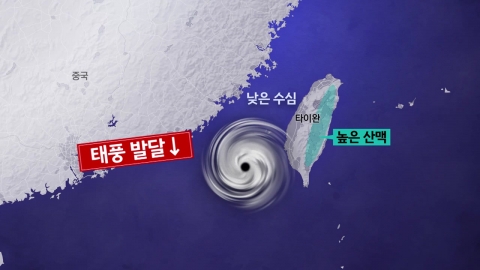 The cold air that blocked "Super Strong Typhoon"..."First Maple Gift" at Mt. Seorak.
The cold air that blocked "Super Strong Typhoon"..."First Maple Gift" at Mt. Seorak.



